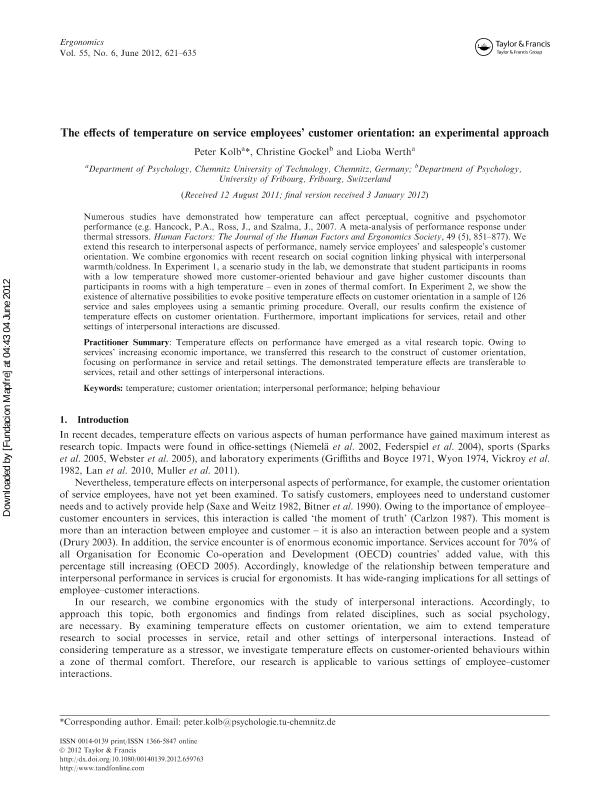The Effects of temperature on service employees' customer orientation : an experimental approach

Contenido multimedia no disponible por derechos de autor o por acceso restringido. Contacte con la institución para más información.
| Tag | 1 | 2 | Valor |
|---|---|---|---|
| LDR | 00000cab a2200000 4500 | ||
| 001 | MAP20120026490 | ||
| 003 | MAP | ||
| 005 | 20120607092819.0 | ||
| 008 | 120604e20120604esp|||p |0|||b|spa d | ||
| 040 | $aMAP$bspa$dMAP | ||
| 084 | $a875 | ||
| 100 | 1 | $0MAPA20120016439$aKolba, Peter | |
| 245 | 1 | 4 | $aThe Effects of temperature on service employees' customer orientation$b: an experimental approach$cPeter Kolba, Christine Gockelb, Lioba Werth |
| 520 | $aNumerous studies have demonstrated how temperature can affect perceptual, cognitive and psychomotor performance (e.g. Hancock, P.A., Ross, J., and Szalma, J., 2007. A meta-analysis of performance response under thermal stressors. Human Factors: The Journal of the Human Factors and Ergonomics Society, 49 (5), 851877). We extend this research to interpersonal aspects of performance, namely service employees' and salespeople's customer orientation. We combine ergonomics with recent research on social cognition linking physical with interpersonal warmth/coldness. In Experiment 1, a scenario study in the lab, we demonstrate that student participants in rooms with a low temperature showed more customer-oriented behaviour and gave higher customer discounts than participants in rooms with a high temperature even in zones of thermal comfort. In Experiment 2, we show the existence of alternative possibilities to evoke positive temperature effects on customer orientation in a sample of 126 service and sales employees using a semantic priming procedure. Overall, our results confirm the existence of temperature effects on customer orientation. Furthermore, important implications for services, retail and other settings of interpersonal interactions are discussed. | ||
| 773 | 0 | $wMAP20100019818$tErgonomics : the international journal of research and practice in human factors and ergonomics$dOxon [United Kingdom] : Taylor & Francis, 2010-$x0014-0139$g04/06/2012 Volumen 55 Número 6 - junio 2012 |

